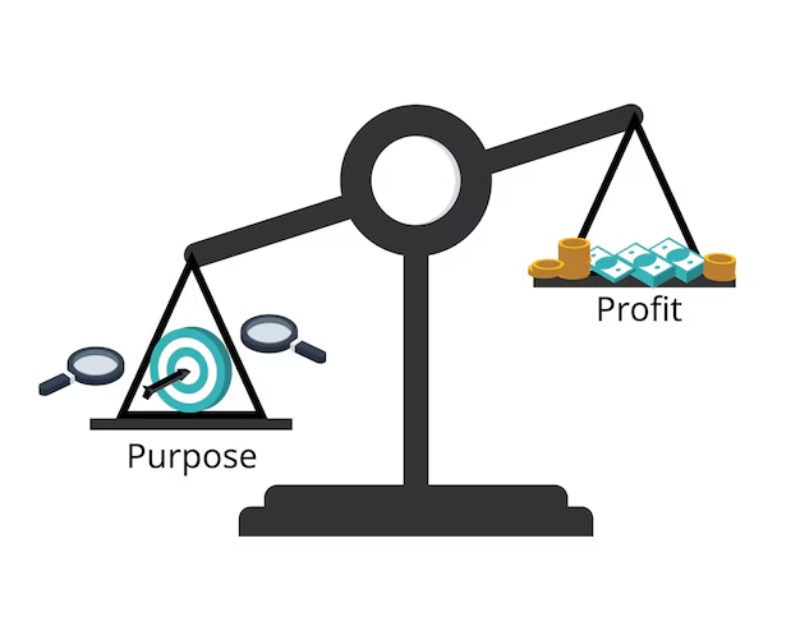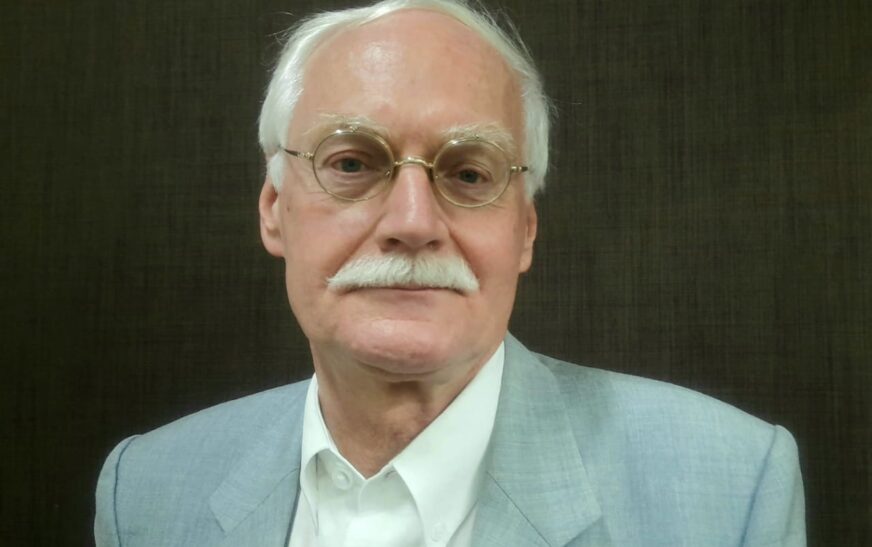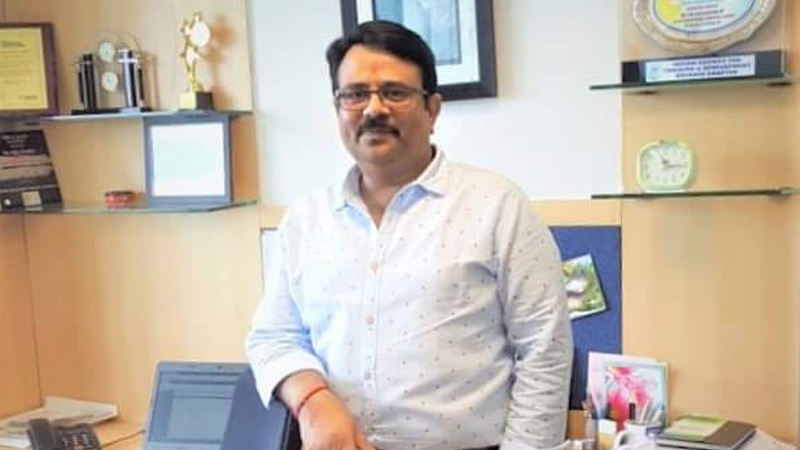Prof. Dr. Maurits van Rooijen leads from the front. He chairs Gisma’s Board of Governors, directs academic strategy for Global University Systems as Chief Academic Officer, and guides the University of Europe for Applied Sciences, Germany, as Rector. Meanwhile, he also presides over the board of IBAT College Dublin, Ireland. Unsurprisingly, his visionary stewardship has earned him the European Association for International Education’s Constance Meldrum Prize for Vision and Leadership and the coveted Insignia d’Ouro from the Universidade de Santiago de Compostela.
Recently, at Jaipuria Institute of Management’s “RISE 2025: Responsible Innovation for a Sustainable Economy” conference, he granted The Interview World an exclusive dialogue. In brisk, candid strokes, he dissected entrepreneurial success, flagged the traps that sink many startups, and insisted that “responsible innovation” must anchor every venture. He then mapped the architecture of a “positive economy,” traced how fresh geopolitical flashpoints jolt global trade, and—true to his minimalist creed—explained why less can indeed deliver more.
The insights below distil the vigour and clarity of his conversation.
Q: In your view, how has the definition and spirit of entrepreneurship evolved in today’s rapidly changing world?
A: Entrepreneurship transcends the mere flash of inspiration. A clever concept, while essential, is only the spark—never the engine. What truly propels a venture is the founder’s character: resilience that rebounds from setbacks, curiosity that challenges orthodoxy, and humility that assembles a first‑rate team. Great entrepreneurs recruit people smarter than themselves, empower them, and then orchestrate collective brilliance. That discipline—more than any single idea—separates sustainable start‑ups from stillborn dreams.
Yet innovation is not the exclusive preserve of the young. Enter the mid‑career “extrapreneur.” After years inside an industry, these professionals spot inefficiencies that outsiders miss. They gather deep sector knowledge, recognise a better way, and pivot—often with breathtaking speed—from practitioner to proprietor. Their ventures inject mature judgment into the marketplace and frequently scale faster because they trade on existing credibility. Extrapreneurs remind us that experience can be as catalytic as youthful zeal.
Meanwhile, large corporations ignore entrepreneurship at their peril. Complacent giants ossify; competitors nibble away their relevance. To stay vibrant, they must seed internal start‑ups, reward calculated risk, and welcome mavericks who challenge the status quo. Corporate entrepreneurs—those intrapreneurs who innovate from within—supply the lifeblood that keeps a behemoth agile and growth‑oriented. Without their restless energy, even the most storied firm drifts into mediocrity and, ultimately, oblivion.
Viewed holistically, entrepreneurship operates on three interlocking levels. First, fresh‑faced founders test new ideas and galvanise teams with audacious dreams. Next, seasoned extrapreneurs harness domain mastery to disrupt entrenched players and elevate industry standards. Finally, corporate entrepreneurs safeguard an organisation’s future by perpetually reinventing its present. Together, these cohorts circulate economic oxygen through society—stimulating job creation, fuelling innovation, and enriching communities.
In short, vibrant economies do not hinge on ideas alone. They thrive on gritty characters who transform concepts into realities, whatever their career stage or organisational setting. Nurture that spirit at every level, and prosperity follows.
Q: While we are witnessing a surge in startup activity, the failure rate remains high, especially in the early stages. In your opinion, what are the key factors contributing to this disconnect between enthusiasm and sustained success?
A: Early stumbles hurt less than late‑career collapses. In youth, a setback becomes raw material for growth, not a permanent scar. True, every start‑up gamble courts failure—and the odds often tilt against success. Yet when an idea falters, the sky does not fall; instead, character steels, insight deepens, and purpose sharpens.
Failure turns toxic only if we refuse to interrogate it. Pause, sift the evidence, and ask: Why did this unravel? What strengths surfaced under pressure? Reflection converts defeat into a rehearsal for the next attempt.
Unfortunately, many classrooms still punish mistakes and brand them with stigma. By equating missteps with shame, we train students to fear risk and, ironically, blunt their capacity to innovate. We should reverse that narrative. Failure, properly framed, is not a verdict on worth but a masterclass in resilience.
Yes, most startups will collapse. So be it. Another idea beckons, another launchpad awaits. Take the lesson, tighten the plan, and try again. After all, progress belongs to those who turn each fall into a forward stride.
Q: What guiding principles or philosophies do you follow to ensure that your development or innovation efforts remain responsible and sustainable?
A: Responsible development or innovation demands a mindset that extends beyond self-interest. It begins with a deep sense of accountability—not just to one’s business, but to the people it affects, the environment it operates in, and the generations yet to come.
An entrepreneur driven solely by personal gain, who ignores the wider impact of their actions, embodies irresponsibility. This narrow, self-centered approach disregards the social, ecological, and ethical consequences of growth. In contrast, a responsible entrepreneur seeks to succeed within a positive and inclusive framework. They strive to create value not just for shareholders, but for society at large. Their ventures aim to uplift communities, protect natural resources, and pave the way for a more equitable future.
Ultimately, true entrepreneurship isn’t just about profit—it’s about purpose, stewardship, and the legacy one leaves behind.
Q: How would you define a ‘positive economy,’ and what role do businesses and individuals play in shaping it?
A: Growth that feeds on greed or exploits people and planet burns bright, then burns out. We must remember: expansion, when fuelled by corrosive motives, poisons prosperity instead of promoting it. By contrast, positive economic growth elevates entire communities. It broadens opportunity, creates dignified work, and spreads genuine well‑being. Indeed, rising prosperity ranks among the greatest drivers of collective happiness—but only when we pursue it for shared benefit, not sheer profit.
Therefore, anchor progress in values that respect stakeholders, steward resources, and reward fairness. Such growth endures; it compounds advantage across generations. Ignore this mandate, and even spectacular gains become a straw fire—flaring in the moment, then collapsing into ash. Sustained prosperity demands ethical momentum, or it never truly takes hold.
Q: In your view, how are recent wars and geopolitical tensions reshaping global economic trends, trade dynamics, and market stability?
A: We inhabit an era deliberately unsettled. Policymakers jab tariffs into supply chains, and politics whipsaws sentiment. After decades of relative calm—punctuated, of course, by the occasional tremor—we had grown comfortable with predictable patterns and cooperative frameworks. Now volatility has stormed back onto centre stage.
Is this turbulence a boon or a bane? The jury is still out, because clear verdicts emerge only in retrospect. History shows that economies, like muscles, strengthen under tension; disruption often ignites innovation and efficiency. Yet, for today’s executives and statesmen, the immediate effect is a throbbing migraine of uncertainty. We humans know the future is unknowable, but we still crave the illusion of stability that lets us chart orderly courses.
Even so, one truth endures: prosperity flows from trade, and trade requires a threshold of peace. Escalating geopolitical or commercial skirmishes throttle the very channels that create jobs and spread wealth. Hence, while a strategic shake‑up can catalyse renewal, chronic conflict will impoverish all. The task before us, therefore, is to harness today’s restlessness as a catalyst without allowing it to metastasise into lasting disorder.
Q: You’ve mentioned the idea that ‘less is more.’ Could you elaborate on what this means to you?
A: “Less is more” hinges on a single‑S acronym—LES: Leadership, Entrepreneurship, Stewardship. Leadership and entrepreneurship alone can run amok; greed, ego, and raw power warp both into destructive forces. Stewardship corrects that drift. It instils a duty to people, planet, and posterity.
Blend the three and their combined value multiplies. Lead with vision. Build with entrepreneurial daring. Ground every decision in stewardship. The result? Businesses that profit and uplift, ventures that leave ecosystems healthier, communities stronger, and future generations better off.
Ignore stewardship, and profit becomes plunder. Suffering mounts, reputations corrode, and whatever triumph you claim today evaporates tomorrow. True legacy demands more than growth; it demands guardianship. Choose LES, and you create enterprises that endure because they serve a larger good.









